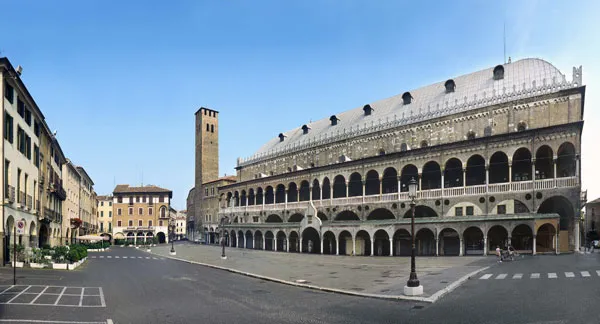
Galileo, Copernicus, Marsilius of Padua, Henry VIII's nephew: all were professors or students at the University of Padua. Like Tulane, the University of Padua has a strong tradition in its professional schools. Founded in 1222 as a school of law, it is one of the oldest universities in Italy, which is to say in the world. In 1399, the focus of the curriculum shifted to science, in the Middle Ages a branch of philosophy concentrating on Aristotle's works on the physical world. One specialization within philosophy was the study of medicine. The first woman in the world to complete all studies for a university degree did so at the University of Padua in 1678, although the degree was not formally awarded because women were officially barred from the university. Today the University of Padua is considered the premier Italian university and is still renowned for its faculties of science, engineering, and philosophy, as well as linguistics, history and literature. Tulane students who participate in our Study Abroad program in Padua have the opportunity of taking courses at the University of Padua.
At the heart of the city is the famous Caffé Pedrocchi, where local citizens and members of the university community have been meeting and holding lively discussions for almost two centuries. But the Pedrocchi is built over a much more ancient site, a temple to the pagan water gods where the several rivers coursing in and around Padua meet. Like the delta of the Mississippi, the delta of the rivers flowing from the Alps onto the Po Valley provided many sources of food to ancient peoples, principally birds and bird eggs, as well as fish and plants. The area was colonized by Greeks, Eastern Europeans and Celts (the museum of Adria, south of Padua, has a superb collection of Greek vases and a Celtic chariot whose horses are buried in the style of the Veneti). In Padua, these peoples had produced seven layers of archeological strata even before the Romans arrived and built several bridges over the rivers of a city that already was five kilometers across.
After the capital of the Roman empire was moved to Constantinople, the towns of the Po Valley developed independent local government with broad citizen participation, pioneering many germinal features of democratic governance. In Padua this tradition is represented by the Salone or communal hall, which, because of the large number of citizens included in the governing body, was one of the largest governmental buildings in Europe when it was built in 1218. Its other name, Palazzo della Ragione, reflects the importance of the various human faculties that governance requires, as ragione meant reason, law, discussion, and accounting. After its recent cleaning, the Palazzo della Ragione shows a dazzling face to the world.
In the fourteenth century, Padua's Aristotelian tradition focusing on government as an instrument for human happiness was combined with the tradition of self-governance by Marsilius of Padua in his Defensor pacis (The Defender of Peace) to attribute authority to the body politic rather than to the pope. His treatise is regarded as the first to advocate the separation of church and state. While Marsilio's goal in writing it was to eliminate a major source of war, the conflict between the emperor and the pope for world authority, it must be kept in mind that he was a ghibelline, a member of the party allied with the Holy Roman Emperor.
Padua shares with New Orleans a love of Carnival and public entertainment. The Roman theater survived in Padua well into the Middle Ages, and the tradition of the Wild Man (a hirsute figure wielding a club) and even of a Wild Woman flourished. My sabbatical research centers on the most important figure in Paduan carnival, the early-sixteenth-century playwright Angelo Beolco, also known as Ruzante from the peasant figure that he created and played on the stage. By locating archival documents that provide information about him, the young nobles that he recruited to play with him, and the Venetian patricians who sponsored his performances, I am working toward a better understanding of the political, economic, social and religious issues addressed in his texts. This is sort of like someone five hundred years from now finding a cell-phone recording of the Krewe de Vieux parade and trying to decode its references. In the long run, there is nothing more serious than Carnival.

